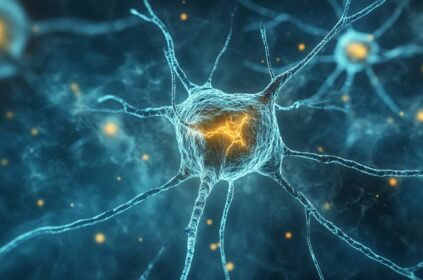Introduction to Delta-9 THC’s Effects on Neuroplasticity and Brain Recovery
The interplay between our environment, experiences, and brain health is as complex as it is fascinating. If you’ve ever engaged in a new hobby, learned a difficult skill, or recovered from an injury, you’ve likely tapped into the concept of neuroplasticity. This remarkable ability of the brain to adapt and grow is crucial for everything from learning new information to recovering from trauma. One substance that has sparked considerable discussion in the realm of neuroplasticity is Delta-9 tetrahydrocannabinol (THC), the primary psychoactive compound found in cannabis. As more states in the U.S. embrace cannabis legalization, understanding how Delta-9 THC influences brain function and recovery has never been more vital.
What is Delta-9 THC?
Delta-9 THC is the chemical in cannabis responsible for the “high” that many users report. It achieves this by interacting primarily with the endocannabinoid system—a crucial network that influences various bodily functions, including pleasure, memory, coordination, and sensory perception. When consumed, Delta-9 THC binds to cannabinoid receptors (CB1 and CB2) in the brain, creating a ripple effect on neural pathways that can alter mood, perception, and cognition.
Neuroplasticity and Delta-9 THC
Neuroplasticity is the brain’s extraordinary ability to reorganize itself by forming new neural connections. It allows the brain to compensate for injury and adapt to new experiences. When investigating how Delta-9 THC affects neuroplasticity, researchers have unearthed both troubling and intriguing findings.
Impacts on Hippocampal Neuroplasticity
The hippocampus plays a crucial role in forming memories and learning. Recent animal studies have indicated that Delta-9 THC may impede neuroplasticity in this region. For instance, research involving trained adolescent rats demonstrated that THC exposure resulted in decreased levels of neuroplasticity and neurogenesis markers within the hippocampus. The implication here is significant: while THC could disrupt the brain’s capacity to reorganize and make new connections, it seems particularly to affect those already engaged in learning behaviors.
Effects on the Aging Brain
Our brains change with age, and chronic exposure to Delta-9 THC can accelerate some of these changes. For example, studies on mice have shown that long-term use of Delta-9 THC might reduce the volume and connectivity of important brain regions, such as those involved in dopamine production. Interestingly, some of these impacts were found to partially reverse after a cessation period. In contrast, another component of cannabis—CBD (cannabidiol)—seems to enhance connectivity within the brain’s global network, even post-abstinence. These findings suggest that while Delta-9 THC might have adverse effects, the relationship between cannabinoids and neuroplasticity is nuanced and deserves careful examination.
Brain Recovery and Rehabilitation
Post-Injury Neuroplasticity
Recovery after brain injuries, such as strokes or concussions, heavily relies on neuroplasticity. In this context, the effects of Delta-9 THC become even more complicated:
- Negative Effects: The disruption of neuroplasticity by Delta-9 THC, particularly noted in animal studies, raises concerns about its potential to hinder essential recovery processes. For individuals engaged in rehabilitation—where regaining lost skills is paramount—this could pose significant challenges.
- Potential Benefits: Conversely, under specific circumstances, low doses of Delta-9 THC have shown potential cognitive benefits. Some studies reported that these lower doses could enhance cognitive functions, such as memory and learning, particularly in aged mice. While promising, it’s essential to approach these results cautiously; human applicability remains uncertain.
Rehabilitation Strategies
In the context of brain recovery, a multidisciplinary approach is often the most effective. Rehabilitation programs typically combine cognitive, physical, and occupational therapies, alongside counseling. These strategies work synergistically to tap into neuroplasticity, harnessing the brain’s intrinsic ability to adapt and heal. Although Delta-9 THC is seldom a frontline treatment in these programs, understanding its effects is vital for informed decision-making.
Practical Considerations and Safety
Potential Side Effects
When contemplating the use of Delta-9 THC, especially in a rehabilitation framework, awareness of potential side effects is crucial. These can include:
- Impaired memory and learning
- Increased heart rate
- Dry mouth
- Anxiety or paranoia
Given these potential pitfalls, moderation, and professional guidance are paramount.
Legal and Medical Context
It’s also important to recognize the legal landscape surrounding Delta-9 THC, which varies significantly across the United States. Individuals considering its therapeutic use should consult healthcare professionals to navigate legal and health-related complexities safely.
Conclusion
The multifaceted impacts of Delta-9 THC on neuroplasticity and brain recovery underline the need for caution and informed consideration. On one hand, there are clear concerns about its ability to disrupt essential cognitive and recovery processes; on the other, it may offer peculiar benefits under particular circumstances. Here are some key takeaways to help consolidate your understanding:
- Understand the Risks: Delta-9 THC has the potential to impair neuroplasticity, particularly regarding memory and learning functions.
- Consult Professionals: Always engage healthcare professionals before using Delta-9 THC for therapeutic purposes.
- Multidisciplinary Rehabilitation: Adopt a holistic approach combining various therapeutic modalities that stimulate neuroplasticity.
- Monitor and Adjust: Keep track of any treatment effects, modifying strategies based on personal responses for the best outcomes.
Actionable Tips
To harness the brain’s natural neuroplasticity while remaining cautious with Delta-9 THC, consider these strategies:
- Engage in Regular Physical Exercise: Exercise is known to foster neuroprotection and promote neuroplasticity through mechanisms like anti-inflammatory effects and long-term potentiation.
- Challenge Your Cognitive Abilities: Explore new hobbies, puzzles, or learning opportunities that push your cognitive limits and stimulate brain function.
- Prioritize Professional Guidance: Always consult healthcare professionals to assess the safety and suitability of any cannabis product you wish to incorporate into your recovery plan.
As our understanding of cannabis, particularly Delta-9 THC, deepens, it becomes increasingly important to integrate science with practical application. By merging factual insights with an understanding of the human experience—our hopes, struggles, and journeys—we can better navigate the complexities of brain health and recovery.
By synthesizing knowledge into actionable insights, we empower ourselves to make informed decisions that enhance our well-being while respecting the intricate workings of our brains.





















